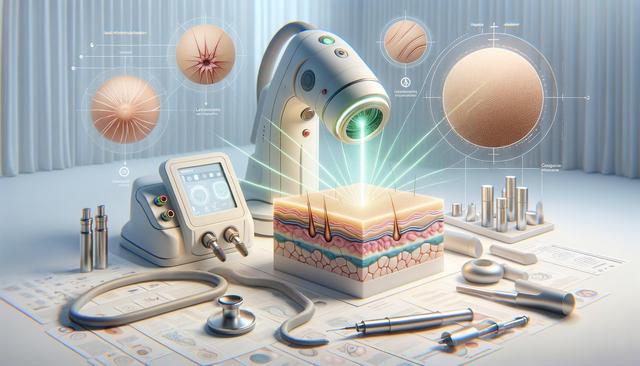Understanding the Role of a Gastroenterologist
A gastroenterologist is a medical specialist who focuses on the digestive system and its disorders. This field of medicine, known as gastroenterology, covers the entire digestive tract, including the esophagus, stomach, intestines, pancreas, liver, and gallbladder. These specialists are trained to diagnose and treat a wide range of conditions, from common issues like acid reflux and irritable bowel syndrome to more complex diseases such as Crohn’s disease and liver cirrhosis.
One of the primary roles of a gastroenterologist is to conduct various diagnostic tests to understand the underlying causes of digestive issues. These tests might include endoscopies, colonoscopies, and imaging studies. By using these procedures, they can provide accurate diagnoses and tailor treatment plans to individual needs. The importance of this specialization cannot be overstated, as digestive health is critical to overall well-being.
Gastroenterologists also play a crucial role in preventive care. They advise patients on lifestyle changes that can improve digestive health, such as dietary adjustments and exercise. By managing risk factors and promoting healthy habits, they help patients prevent the onset of more severe conditions. This proactive approach is vital in maintaining long-term health and avoiding unnecessary complications.
When to See a Gastroenterologist
Knowing when to consult a gastroenterologist can be pivotal in addressing digestive health issues effectively. While primary care physicians can handle minor digestive complaints, there are specific symptoms and conditions that warrant a specialist’s attention. Persistent abdominal pain, unexplained weight loss, chronic diarrhea or constipation, and blood in the stool are red flags that should not be ignored.
For individuals with a family history of gastrointestinal diseases, regular check-ups with a gastroenterologist are advisable. Early detection of conditions like colorectal cancer can significantly improve treatment outcomes. Gastroenterologists are equipped with the expertise to conduct screenings and monitor high-risk patients closely.
Another critical aspect is the management of chronic digestive disorders. Patients with conditions like ulcerative colitis or celiac disease require ongoing care and regular monitoring. A gastroenterologist can provide comprehensive management plans that include medication, lifestyle modifications, and regular follow-ups. This level of care ensures that patients maintain a good quality of life despite their chronic conditions.
How to Choose the Right Gastroenterologist
Choosing the right gastroenterologist is a decision that can impact your health significantly. Start by seeking recommendations from your primary care physician, who can refer you to a specialist with a good reputation. Additionally, consider the gastroenterologist’s credentials, including their education, board certification, and years of experience.
Another essential factor is the specialist’s area of expertise. Some gastroenterologists focus on specific conditions, such as inflammatory bowel disease or liver disorders. If you have a particular condition, finding a specialist with experience in that area can be beneficial. Researching their involvement in research or clinical trials can also provide insight into their expertise and commitment to the field.
Patient reviews and testimonials can offer additional perspectives on the gastroenterologist’s practice. Look for feedback on their communication style, bedside manner, and the efficiency of their office staff. A positive experience with the medical team can enhance your overall healthcare journey, making it more comfortable and less stressful.
Preparing for Your Gastroenterologist Appointment
Preparation is key to making the most of your appointment with a gastroenterologist. Start by compiling a detailed list of your symptoms, including their duration and any patterns you’ve noticed. Documenting your medical history, including previous surgeries and current medications, is also crucial.
Before the appointment, consider any questions or concerns you have regarding your digestive health. Writing these down ensures you don’t forget to address them during the consultation. Common questions might include inquiries about potential diagnoses, treatment options, and lifestyle changes.
It’s also beneficial to bring along any relevant medical records or test results. This information can provide the gastroenterologist with a comprehensive view of your health, aiding in accurate diagnosis and treatment planning. By being proactive and organized, you can ensure that your appointment is as productive as possible.
Maintaining Digestive Health: Tips and Recommendations
Maintaining digestive health is an ongoing process that requires attention to diet, lifestyle, and regular medical care. A balanced diet rich in fiber, fruits, and vegetables can promote healthy digestion and prevent common issues like constipation. Staying hydrated and limiting the intake of processed foods and sugar are also beneficial.
Regular physical activity is another critical component of digestive health. Exercise helps stimulate intestinal activity and can alleviate symptoms of digestive disorders. Activities like walking, yoga, and swimming are gentle on the body while promoting overall well-being.
Lastly, stress management plays a significant role in maintaining digestive health. Stress can exacerbate conditions like irritable bowel syndrome and lead to poor dietary choices. Techniques such as meditation, deep breathing exercises, and adequate sleep can help manage stress levels effectively.
By integrating these practices into your daily routine, you can support your digestive system and improve your overall health. Regular check-ups with a healthcare provider ensure that any emerging issues are addressed promptly, allowing you to enjoy a healthier, more comfortable life.




Leave a Reply